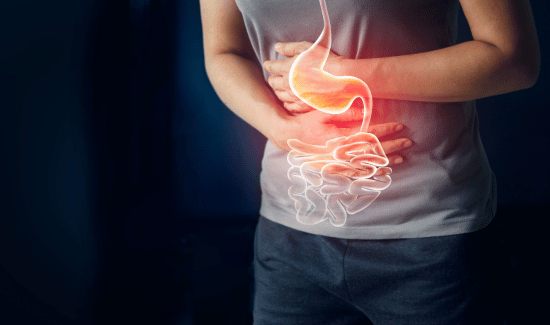
Are you a coffee enthusiast who simply cannot function until they’ve had their first steaming hot cup of Joe in the morning? Well, you’re not alone! Coffee has become an essential part of our daily routine, giving us that much-needed boost to kick-start our mornings. However, have you ever experienced the unpleasant surprise of running to the bathroom shortly after enjoying your favorite brew? Yes, we’re talking about diarrhea – and it begs the question: Can coffee cause this uncomfortable digestive issue?
In this blog post, we’ll dive into the caffeinated world of coffee and explore whether or not it could be responsible for those unexpected bathroom dashes. So grab your mug and let’s find out if your beloved beverage is truly to blame!

The caffeine in coffee
The caffeine in coffee is one of the main factors that can potentially cause diarrhea. Caffeine is a natural stimulant found in coffee, tea, chocolate, and some medications. It acts as a mild laxative by stimulating the muscles in your digestive system.
When you consume coffee, the caffeine stimulates your gastrointestinal tract, causing increased contractions and food movement through your intestines. This accelerated movement can lead to looser stools or even diarrhea in some individuals. However, it’s important to note that not everyone experiences this effect. Some people may be more sensitive to the laxative properties of caffeine than others. Other factors such as individual tolerance levels and overall health may also play a role.
If you find that coffee consistently causes diarrhea for you, it may be worth considering reducing your caffeine intake or switching to decaffeinated options instead. Experimenting with different brewing methods or types of coffee beans might also help alleviate any adverse effects.
Remember that it’s best to drink caffeinated drinks like coffee in moderation. Watch how your body responds and make changes based on what you observe.

How does coffee cause diarrhea?
How does coffee cause diarrhea? It’s a question that many coffee lovers may ask themselves when faced with an upset stomach after indulging in their favorite beverage. The answer lies in the caffeine content of coffee.
Caffeine is a natural stimulant found in coffee and other drinks like tea and energy drinks. When consumed, it can have various effects on the body, including stimulating the digestive system. This stimulation can cause the intestines to contract more, which makes food move through the digestive system faster.
In some individuals, this accelerated movement of food can result in loose stools or diarrhea. Additionally, caffeine has been shown to increase bowel movements by promoting water secretion into the intestines. Another factor to consider is that coffee also has an acidic nature which can irritate the lining of your stomach and intestines. This irritation can trigger symptoms such as abdominal discomfort and diarrhea.
It’s worth noting that not everyone experiences these effects from drinking coffee. Some people may be more sensitive to caffeine or have pre-existing conditions that make them more prone to gastrointestinal issues.
If you find that you experience diarrhea after consuming coffee, it may be helpful to limit your intake or opt for decaffeinated versions instead. Additionally, paying attention to your overall diet and lifestyle habits can also play a role in managing any potential digestive issues.
Remember though; everyone’s body reacts differently, so what causes diarrhea for one person might not affect another person at all! As always consult with a healthcare professional if you have concerns about how certain foods or beverages are affecting your health!

Other possible causes of diarrhea
Aside from coffee, there are several other factors that can contribute to diarrhea. It’s essential to understand these potential causes and how they may affect your digestive system.
1. Food intolerances or allergies:
Some people experience diarrhea after consuming certain foods that their bodies cannot tolerate. Common culprits include lactose, gluten, and certain spicy or fatty foods.
2. Medications:
Certain medications, such as antibiotics or laxatives, can disrupt the balance of bacteria in your gut and lead to diarrhea as a side effect.
3. Infections:
Bacterial or viral infections can irritate your intestines and cause loose stools. These infections can be contracted through contaminated food or water.
4. Stress and anxiety:
Emotional stress can have a significant impact on your digestive system, leading to symptoms like diarrhea.
5. Digestive disorders:
Conditions such as irritable bowel syndrome (IBS), Crohn’s disease, ulcerative colitis, or celiac disease may also cause chronic diarrhea.
6. Consuming spoiled food or beverages:
Eating expired or contaminated food products can introduce harmful bacteria into your digestive tract and result in gastrointestinal distress.
7. Traveler’s diarrhea:
When traveling to foreign countries with different sanitation practices than what you’re accustomed to, you may experience traveler’s diarrhea due to exposure to new pathogens.
Remember that everyone is unique when it comes to their digestion process; what might trigger one person’s symptoms might not affect another at all! If you consistently experience bothersome symptoms like recurring episodes of diarrhea without an apparent cause, it is advisable to consult a healthcare professional for proper evaluation and diagnosis.
Stay tuned for our next blog section where we’ll discuss some helpful tips on managing coffee-related gastrointestinal issues!
Conclusion
In the world of coffee lovers, a common concern often arises – can coffee cause diarrhea? After exploring various factors and possibilities, we have reached the end of our discussion. However, it is important to remember that individual experiences may vary, and consulting a healthcare professional is always advisable for specific concerns.
While coffee does contain caffeine which acts as a stimulant in the digestive system, not everyone will experience diarrhea after consuming it. Factors such as overall health, tolerance levels, and even types of coffee consumed can play a role in how our bodies react.
It’s worth noting that there are other possible causes of diarrhea as well. Food intolerances or allergies to additives like milk or artificial sweeteners commonly found in flavored coffees may be responsible for gastrointestinal distress. Additionally, certain medical conditions such as irritable bowel syndrome (IBS) or inflammatory bowel disease (IBD) could also contribute to these symptoms.
While some individuals may experience an increase in bowel movements after consuming coffee due to its caffeine content and potential irritant effect on the digestive system, it is not necessarily true for everyone. It’s essential to pay attention to your body’s signals and make adjustments accordingly if needed. Remember that moderation is key when enjoying any beverage or food item!
FAQs About Can Coffee Cause Diarrhea
1. Are there any other common culprits for diarrhea?
Yes, besides coffee, there are several other potential causes of diarrhea. These include certain medications, infections such as food poisoning or viral gastroenteritis, lactose intolerance, irritable bowel syndrome (IBS), inflammatory bowel disease (IBD), and excessive consumption of fatty or spicy foods.
2. Should I avoid drinking coffee if it gives me diarrhea?
If you consistently experience diarrhea after consuming coffee, it may be worth considering reducing or eliminating your intake to see if symptoms improve. However, it’s essential to consult a healthcare professional for personalized advice based on your specific situation.
3. Is decaffeinated coffee a better option?
Decaffeinated coffee still contains trace amounts of caffeine that could potentially affect sensitive individuals who experience gastrointestinal issues with regular caffeinated beverages like tea or soda. However, some people find that switching to decaf helps alleviate their symptoms.

As a dedicated blogger, I share insights, tips, and knowledge on all things caffeinated and beyond. I firmly believe that a well-brewed cup of coffee or a skillfully crafted cocktail has the power to unite people and ignite engaging conversations.



